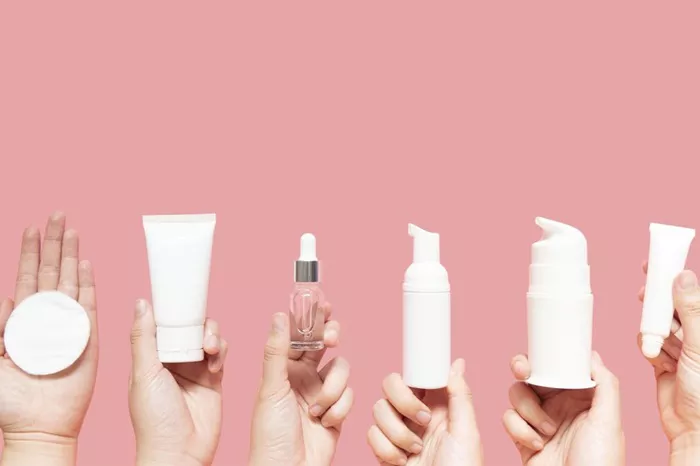Taking care of your skin is essential for keeping it healthy and looking good. Basic skincare refers to the fundamental steps that help protect, nourish, and maintain the skin. These steps are simple, yet they make a big difference over time.
Everyone’s skin is different, but the basic principles of skincare apply to all skin types. In this article, we will cover the essential steps of a basic skincare routine, the importance of each step, and how to choose the right products for your skin type.
Why Is Skincare Important?
Your skin is the largest organ of your body. It acts as a barrier to protect you from bacteria, pollutants, and harmful UV rays. A good skincare routine helps in:
- Preventing skin problems like acne, dryness, and irritation
- Slowing down the signs of aging, such as wrinkles and fine lines
- Keeping the skin hydrated, soft, and smooth
- Enhancing your natural glow and complexion
- Protecting the skin from environmental damage
A consistent skincare routine not only improves your skin’s appearance but also boosts confidence and overall well-being.
The Basic Steps of Skincare
A basic skincare routine consists of a few essential steps. These steps include cleansing, moisturizing, sun protection, and sometimes exfoliation. Below, we explain each step in detail.
1. Cleansing: Keeping the Skin Clean
Cleansing is the first step in any skincare routine. It removes dirt, oil, makeup, and impurities from the skin.
- Why is cleansing important?
- Prevents clogged pores and acne
- Removes excess oil and bacteria
- Prepares the skin for other skincare products
- How to choose a cleanser?
- For oily skin, use a gel or foaming cleanser
- For dry skin, choose a hydrating or cream-based cleanser
- For sensitive skin, pick a gentle, fragrance-free cleanser
Wash your face twice a day—once in the morning and once before bed—to keep your skin fresh and clean.
2. Moisturizing: Hydrating the Skin
Moisturizing helps keep the skin hydrated and strengthens the skin’s barrier.
- Why is moisturizing important?
- Prevents dryness and flakiness
- Helps the skin retain moisture
- Creates a protective barrier against pollutants
- How to choose a moisturizer?
- Oily skin: Choose an oil-free, lightweight gel moisturizer
- Dry skin: Use a rich, creamy moisturizer
- Combination skin: Go for a balanced formula
- Sensitive skin: Pick a fragrance-free and hypoallergenic moisturizer
Apply moisturizer twice a day, after cleansing, to maintain soft and supple skin.
3. Sun Protection: Shielding the Skin from UV Damage
Sunscreen is a crucial step in skincare. It protects the skin from harmful UV rays that cause premature aging, sunburn, and even skin cancer.
- Why is sunscreen important?
- Prevents sunburn and sun damage
- Reduces the risk of skin cancer
- Helps prevent wrinkles and dark spots
- How to choose a sunscreen?
- Look for SPF 30 or higher
- Use broad-spectrum sunscreen to block UVA and UVB rays
- Pick a lightweight sunscreen if you have oily skin
- Choose a hydrating formula for dry skin
Apply sunscreen every morning, even on cloudy days. Reapply every two hours if you’re outdoors.
4. Exfoliating: Removing Dead Skin Cells
Exfoliation helps remove dead skin cells, unclog pores, and improve skin texture. However, it should not be done every day.
- Why is exfoliation important?
- Enhances skin radiance
- Helps prevent acne and breakouts
- Improves absorption of skincare products
- How to exfoliate correctly?
- Use a gentle scrub or chemical exfoliant
- Exfoliate 1–3 times a week, depending on your skin type
- Avoid over-exfoliation to prevent irritation
People with sensitive skin should use mild exfoliants and avoid harsh scrubs.
How to Choose the Right Skincare Products
Choosing the right skincare products depends on your skin type. Here’s a simple guide:
- Oily skin: Use lightweight, oil-free, and mattifying products.
- Dry skin: Opt for hydrating and creamy formulations.
- Sensitive skin: Avoid fragrances, alcohol, and harsh chemicals.
- Combination skin: Use a mix of products that balance hydration and oil control.
Patch-test new products before applying them to your entire face to avoid irritation.
Additional Skincare Tips
- Drink enough water to keep your skin hydrated from the inside out.
- Eat a balanced diet with vitamins and antioxidants to support skin health.
- Get enough sleep to allow your skin to repair and regenerate.
- Avoid touching your face to prevent bacteria transfer.
- Remove makeup before bed to prevent clogged pores and breakouts.
Conclusion
Basic skincare is about keeping your skin clean, hydrated, and protected from the sun. The key steps—cleansing, moisturizing, sun protection, and occasional exfoliation—help maintain healthy skin over time.
Understanding your skin type and choosing the right products will make your skincare routine more effective. By following a simple, consistent routine, you can achieve healthy, glowing skin.
Related topic:
What Should I Keep In My Skincare Fridge?
How to Keep Your Skin Healthy As You Age?


